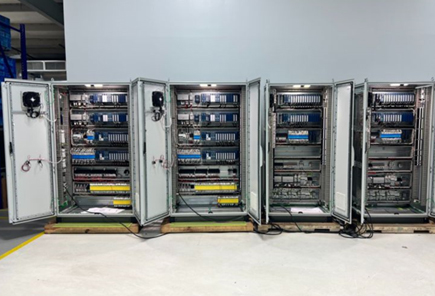
Automation is rapidly changing the landscape of many industries, and one of the key components driving this transformation is Programmable Logic Controllers (PLCs). These devices are at the heart of many automated systems, controlling and monitoring machinery and processes in sectors ranging from manufacturing to energy to transportation. As we look to the future of automation, exploring the role of electrical engineering PLC programming is essential for understanding the potential and possibilities that lie ahead.
PLCs are specialized computers that are designed to withstand harsh industrial environments and are programmed to control a wide variety of applications. They are used to automate processes that require precise and reliable control, such as robotic assembly lines, power plants, and even traffic lights. As technology advances, the capabilities of PLCs are expanding, allowing for more complex and sophisticated control systems to be developed.
Electrical engineers play a crucial role in the design, implementation, and maintenance of PLC systems. They are responsible for writing the code that dictates how the PLC will operate, as well as for troubleshooting and optimizing the system to ensure that it functions efficiently. With the increasing integration of automation into various industries, the demand for electrical engineers with expertise in PLC programming is only expected to grow.
One of the key trends shaping the future of automation is the convergence of PLCs with other advanced technologies, such as artificial intelligence (AI) and the Internet of Things (IoT). By incorporating AI algorithms into PLC programming, engineers can create systems that can adapt and learn from their surroundings, leading to more intelligent and autonomous control systems. Similarly, connecting PLCs to the IoT allows for real-time monitoring and data analysis, enabling predictive maintenance and optimizing performance.
Another emerging trend in PLC programming is the shift towards cloud-based systems. By storing PLC programs and data in the cloud, engineers can access and update them remotely, leading to greater flexibility and scalability. This also allows for easier integration with other cloud-based technologies, such as data analytics and machine learning, further enhancing the capabilities of automated systems.
As automation continues to revolutionize industries, it is essential for electrical engineers to stay abreast of the latest developments in PLC programming. This includes understanding new programming languages, such as IEC 61131-3, which provide a standardized approach to PLC programming and make it easier to develop and maintain complex systems. Additionally, engineers must be familiar with cybersecurity best practices to ensure that PLC systems are protected from potential cyber threats.
Looking ahead, the future of automation holds great promise for electrical engineering PLC programming. With advancements in technology and the increasing demand for automated systems, electrical engineers will play a pivotal role in shaping the industry. By embracing new technologies, staying current with industry trends, and honing their skills in PLC programming, engineers can position themselves for success in the automated world of tomorrow.
In conclusion, as automation continues to transform industries, the role of electrical engineering PLC programming will become increasingly vital. By staying informed about emerging trends, such as AI integration, IoT connectivity, and cloud-based systems, engineers can harness the full potential of PLCs to create more efficient and intelligent control systems. With the right skills and expertise, electrical engineers can help drive the future of automation and revolutionize the way we work and live.